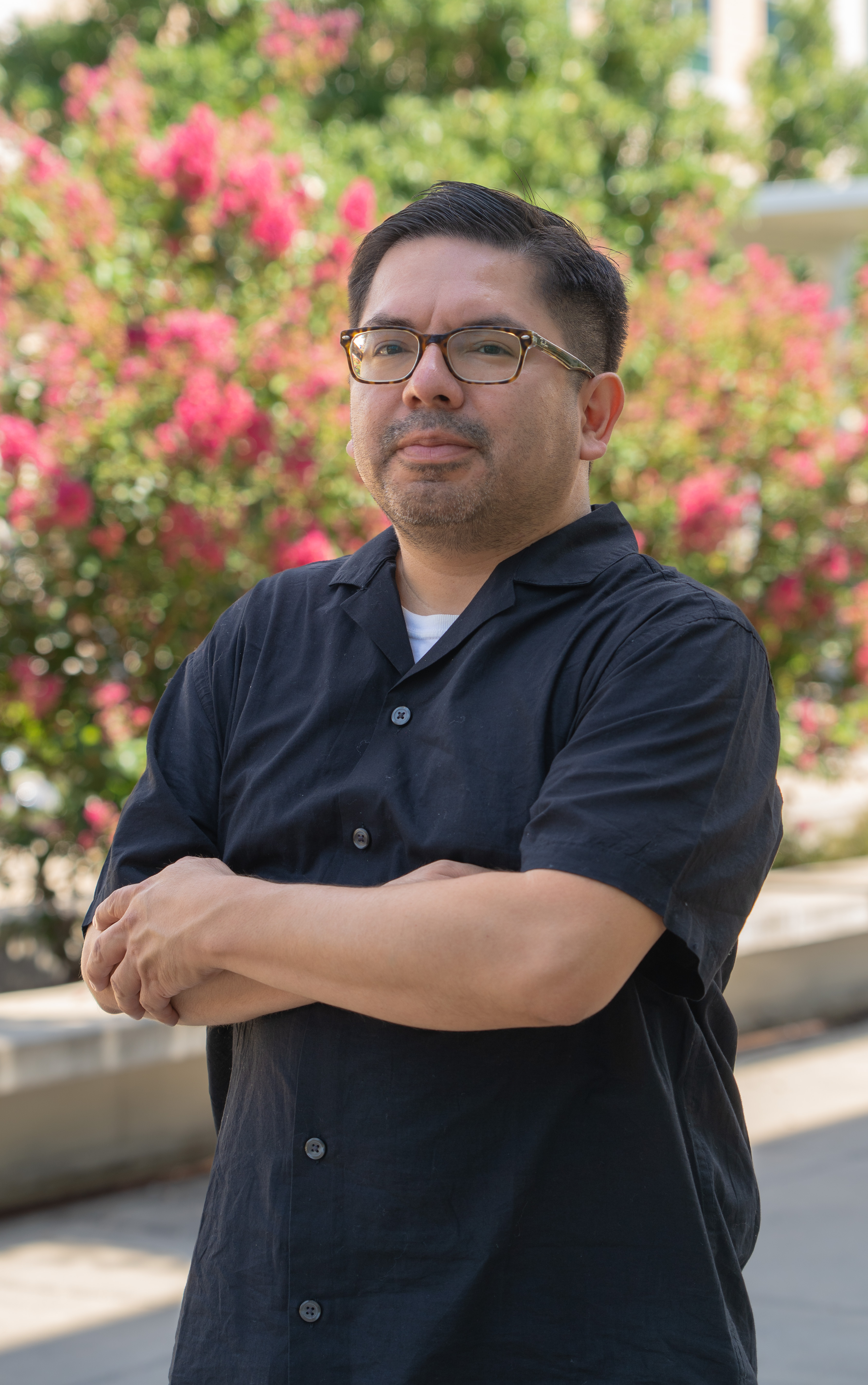for Webflow

Luis Molina is a professor of mathematics at Lone Star College–CyFair, where he teaches a wide range of college-level math courses and works to make mathematics more relevant, accessible, and student-centered. Born in Galveston and raised in South Houston, he’s the son of Mexican parents from Ayutla, Querétaro and Matehuala, San Luis Potosí. His focus is on supporting Latinx, first-generation, and underrepresented students in STEM.
Luis is currently developing a course called Mexican-American Mathematics, which looks at math through cultural history, indigenous knowledge, and identity. The course includes systems like the Nepohualtzintzin, a pre-Columbian base-20 counting system, and invites students to explore how math connects to their lives, not just to a textbook.
Professor Molina also leads efforts to redesign math courses around real-world use. He’s piloting themed sections like College Algebra for Cybersecurity and Statistics for Public Health, along with new ways to bring in workforce relevance and applied learning. He’s also using Lumen One in his statistics course to make materials more affordable and flexible.
Luis founded MathSpace, a tutoring and collaboration hub where students can study, get support, and work directly with faculty. His teaching blends traditional skills with projects, cultural context, and tools like AI and modeling software.
What drives his work is the belief that math should be a tool students can use and one they see themselves in. He wants students to feel like they belong in the math classroom, and that what they’re learning matters in the world outside of it.
Luis Molina’s contributions to the mathematical sciences focus on transforming how math is taught, experienced, and connected to students’ lives, particularly at the community college level. As a professor at Lone Star College CyFair, a Hispanic-Serving Institution, he works to ensure that mathematics is accessible, culturally grounded, and relevant to both individual growth and broader community needs.
In teaching, Molina brings clarity and intentional design to the classroom. He teaches a broad range of college-level mathematics courses, from algebra and business math to statistics and calculus. Across all levels, he focuses on making content meaningful by using real-world data, student-centered projects, and cross-disciplinary themes. He regularly designs assignments that connect math to career pathways, current social issues, and emerging technologies. His piloting of the Lumen One statistics course reflects his commitment to accessible and flexible learning, especially for first-generation and working students.
His mentorship happens both inside and outside the classroom. As faculty advisor to the Math Club, Molina helps students build academic identity, leadership, and confidence in math spaces. Under his guidance, many student officers have gone on to secure undergraduate research placements and STEM internships. He also mentors students informally through office hours, conversations after class, and study sessions in Math Space, the faculty-led tutoring and collaboration hub he founded. These moments often provide students with direction, encouragement, and a sense that they belong in mathematics.
Molina’s service includes leading curriculum development that connects math instruction to student interests and workforce goals. He has helped design themed sections like College Algebra for Cybersecurity, Statistics for Public Health, and Math for Liberal Arts with a cultural lens. He also developed Mexican-American Mathematics, a course that integrates Indigenous knowledge systems such as the Nepohualtzintzin. This course allows students to explore mathematical thinking through history, identity, and community experience. His work helps students see mathematics not as something distant or abstract, but as something they already engage with and can contribute to.
He collaborates with faculty, advisors, and campus leadership to align math instruction with college priorities around equity, retention, and transfer. These efforts support a broader vision for reimagining how math fits into students’ educational paths, especially for those in applied and interdisciplinary programs.
Molina’s contributions are unified by a clear goal: to ensure that mathematics serves students in real and lasting ways. Through instruction, mentorship, and service, he helps build a version of math education that is rigorous, inclusive, and grounded in the lives of the people it’s meant to reach.
“Hispanic Heritage Month reminds me that our achievements aren’t just personal, they’re rooted in family, culture, and the pride that carries across generations. I think of my father, who lit up anytime he saw one of my students, calling me ‘Professor’ with deep joy and genuine pride. Though he’s gone now, his belief in me lives on and continues to guide my work. This month is a reminder that our heritage isn’t something we perform, it’s who we are, every day. We carry our history with us not just in celebration, but in how we teach, lead, and live with purpose.”